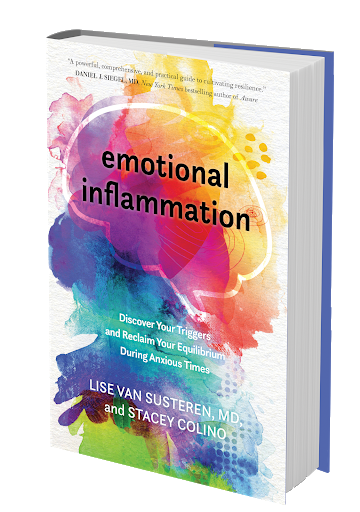Thanks to groundbreaking research, we have recently learned that every cell has its own timekeeper that can be thought of as a local clock. Deep within the brain, in the hypothalamus, lies a master clock that regulates all the local clocks, making sure that each one is set to the same time. This complex, coordinated process is in sync with the alternating cycles of day and night and with all the degrees of changing light that occur in a 24-hour period as Earth rotates on its axis. Called the “circadian rhythm”—from the Latin words circa, which means “going around,” and diem, meaning “day”—this internal process regulates the human body’s sleep-wake cycle, among many other functions.
The master clock (think of it as circadian rhythm central) sends hormonal and nerve signals throughout the body, synchronizing the cells’ clocks to the day-night, light-dark cycle of life. On a continuous basis, the master clock can determine what time it is based on messages from photoreceptor cells in the retina that register light conditions outside and report these to the brain via specialized pathways.

Meanwhile, the cellular clocks keep local time, making sure that various activities locally are timed right and are appropriately coordinated with other cells and organs. This is why, for example, key enzymes are produced at certain times, blood pressure and body temperature are controlled, hormones are secreted, the gut microbiome is populated with the right balance of bacteria, and gut motility is appropriate for the hour.
Living in harmony with the way we have evolved brings physiological and emotional balance, creating a good fit between our bodies and minds, between what we’re doing and how we’re designed to function. Honoring our body’s natural rhythms helps stabilize our mood, become more resistant to stress, feel less physical pain, and generally feel and function better physically and mentally. It’s an essential step in cooling and calming emotional inflammation.
The following are some ways you can adjust your habits so that they support your body’s inherent rhythms:
- Put yourself on a sleep schedule. Establish a regular sleep-wake schedule so that you go to bed at approximately the same time each night and wake up at the same time each morning. It’s fine to vary your bedtime by an hour or two occasionally, but don’t sleep in more than an extra hour on the weekends (unless you’re sick); otherwise, you will end up disrupting your sleep pattern for the next night.
- Identify your slumber sweet spot. Most adults need seven to nine hours of sleep per night to feel and function at their best. Once you figure out how much you need, determine what time you need to get up in the morning and work backward to set an appropriate bedtime; or, you can identify what time of night you typically feel sleepy and then set a wake-up time accordingly.
- Brighten your mornings. When you get up in the morning, expose yourself to bright, natural light to stimulate alertness, enhance your mood, and help calibrate your circadian rhythms. Take a brisk walk outside or have breakfast in a sunny spot. If you struggle to reset your internal clock to the “awake” setting in the morning, consider buying a commercial light box that emits 10,000 lux, which mimics a bright, sunny day. Sitting in front of such a light box for 30 minutes in the morning, perhaps while you have breakfast or read the newspaper or newsfeeds, has been found to stimulate alertness and improve mood. Alternatively, you could opt for a desk-lamp-style light box for your desk at work.
- Adjust your indoor lighting. Fascinating research has found that office workers who are exposed to greater amounts of light in the morning fall asleep more quickly at night. They also have better sleep quality and better moods, including less depression and stress, than those who are exposed to low light in the morning.
- Darken your evenings. There is another good reason to make sure that your bedroom (or wherever you sleep) is dark: When people are exposed to light during the night, their total daily melatonin production is suppressed dramatically, by as much as 50 percent. In other words, that nighttime light exposure throws the body’s 24-hour hormone production schedule off-kilter. It’s also wise to install a dimmer switch on the overhead light in the bathroom—or use a dim night-light—so that bright vanity lights don’t stimulate your senses and alertness while you’re taking care of bathroom business before hitting the sack or if you get up during the night.
Ultimately, honoring your body’s natural rhythms requires taking back control of your nights and days. It’s about putting time on your side and making conscious choices about the way you want to live so that you can restore your internal equilibrium, physiologically and psychologically.
Yes, changing your behavior requires giving up the patterns you chose, consciously or not, in the past, and making the switch does take some effort and resolve. But if you make it a priority to stop upsetting your body’s internal rhythms and start living in sync with your body’s inherent needs, the payoffs will be well worth the effort. Your mood is likely to end up on a more even keel, and your energy will increase. Your physical health will probably improve and your emotional equilibrium will, too. Think of it this way: By respecting your body’s rhythms and doing whatever you can to maintain their regularity, you’ll be resetting your internal emotional thermostat, which will improve the way you react to and deal with the stresses and strains that are unavoidable in our modern world.
This is an excerpt from Emotional Inflammation: Discover Your Triggers and Reclaim Your Equilibrium During Anxious Times by Lise Van Susteren, MD, and Stacey Colino.
A Music Playlist for Better Sleep
To help you achieve the best night of rest, we recommend falling asleep to this relaxing music playlist, Music for Better Sleep, available through Sounds True on Spotify.

Lise Van Susteren, MD, previously served as a clinical professor of psychiatry at Georgetown University. She is a go-to commentator about anxiety and trauma for television (including CNN, Good Morning America, NBC, VOA, and Fox News), radio (NPR, Minnesota Public Radio, and others), print media (including the Washington Post, the Wall Street Journal, Newsweek, the Huffington Post, and CQ Magazine), and online outlets (such as Live Science, U.S. News & World Report, Global Health NOW, and many others).
As a thought leader and activist, Dr. Van Susteren addresses issues related to trauma and emotional inflammation through her roles at the Earth Day Network and Physicians for Social Responsibility. She is considered an expert in the psychological effects of climate change.
Stacey Colino is an award-winning writer specializing in health and psychology. In addition to her work as a book collaborator, she is a regular contributor to U.S. News & World Report and AARP.org. Her work has appeared in the Washington Post Health section, Newsweek, Parade, Cosmopolitan, Real Simple, Health, Prevention, Woman’s Day, Harper’s Bazaar, Parents, and Good Housekeeping, among other magazines and newspapers.
Buy your copy of Emotional Inflammation at your favorite bookseller!







